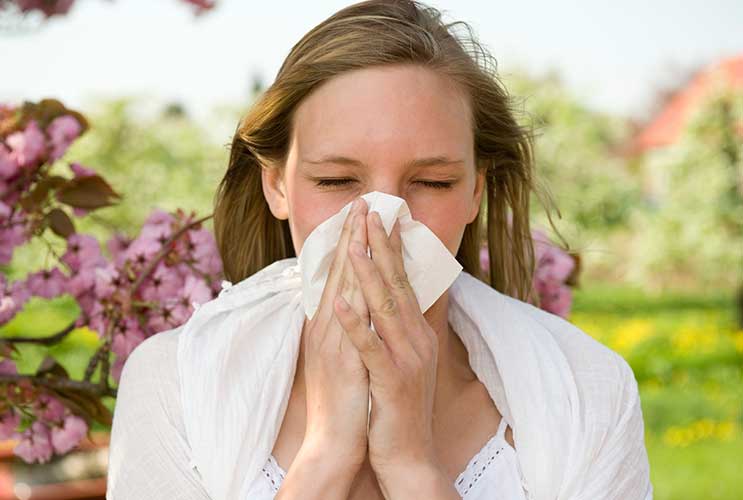
Call it what you will, but there you are again, with a wad of tissues in your pocket trying to fend off the latest round of sneezing. Then that million dollar question inevitably comes into your mind: allergies or cold? How about when your cubicle mate sneezes, and you’re worried she’ll get you sick and ruin that long weekend you’ve been planning. Again the question: allergies or cold?
According to WedMD, “Although there are some differences, cold and allergy symptoms overlap quite a bit. The most important difference is that colds usually don’t last longer than 14 days.” If you tend to get “colds” that develop suddenly and occur at the same time every year, it’s possible that you have seasonal allergies. Common colds are caused by viruses, while seasonal allergies are your immune system’s responding to an allergen as if it were an illness. Treatments for the common cold may include rest, pain relievers and over-the-counter cold remedies. The best treatment for seasonal allergies is to avoid what triggers an allergic reaction. You may also need over-the-counter or prescription antihistamines, nasal steroid sprays and decongestants.
So how do you really know if it’s an allergy or cold making you sneeze? Check out these symptoms.
1. Cough
Coughing usually appears with a cold and sometimes appears with an allergy. A cough from allergies is usually accompanied by itchy, watery eyes and a runny nose. Coughs from colds often come with aches and sometimes a fever. A cough from a cold will disappear when the cold does, an allergy cough will be more intermittent and could linger as long as the allergen does.
Read Related: Kids with Food Allergies? Try These Tasty Substitutes











